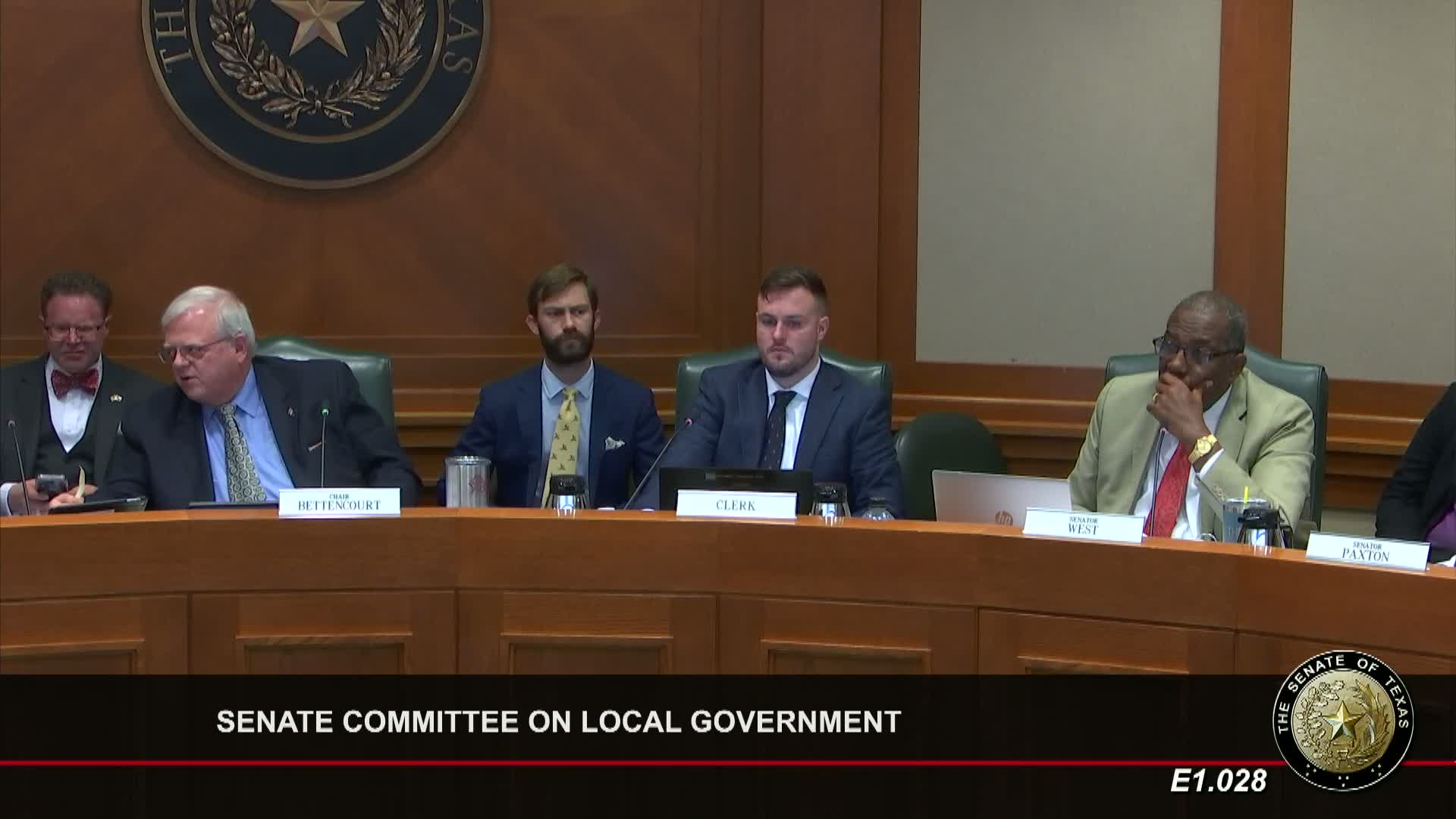Senate committee hears calls to raise penalties for public contracting abuses after Harris County cases
Get AI-powered insights, summaries, and transcripts
Subscribe
Summary
Lawmakers and criminal-justice witnesses urged the Senate Committee on Local Government to increase criminal penalties for circumventing competitive bidding rules and misuse of official information, citing cases in Harris County and across Texas as examples of weak deterrents under current law.
Senate Committee on Local Government members on Wednesday heard testimony urging lawmakers to strengthen criminal penalties for public contracting abuses, including bid rigging and misuse of official information.
The committee discussed Senate Bill 2,046, filed by Senator Paul Bettencourt, which would increase the criminal penalties tied to violations of county purchasing laws and create a tiered penalty structure keyed to contract amounts. Bettencourt said current sanctions — including a class C misdemeanor for some practices — are inadequate deterrents for schemes that can involve millions of taxpayer dollars.
The bill would raise penalties and create a tiered system linking the severity of a punishment to the contract amount and would add new penalties for intentional, repeated efforts to break up procurements to avoid competitive bidding. Bettencourt told the committee the bill is intended to give prosecutors more workable tools and send a clearer message about stewardship of public funds.
Several invited witnesses described high-profile cases in Harris County as evidence that the current statutory penalties are too low. Kim Ogg, the former Harris County district attorney, described investigations into pandemic-era contracting and testified that existing penalties did not reflect the seriousness of the alleged misconduct. Ogg cited an 11-million-dollar outreach contract and a $35-million technology contract in her testimony and said increasing penalties would strengthen deterrence.
Josh Reno, deputy attorney general for criminal justice, told senators the change would provide "teeth" so officials take procurement rules seriously. He and Ogg both urged lawmakers to consider felony-level penalties tied to the value of improperly steered contracts rather than the present low-level misdemeanor treatment.
Opponents or skeptics at the hearing urged caution about presuming guilt in high-profile matters and noted prosecutorial discretion and proof issues. Senator Angela West pressed Ogg and Reno about the outcomes of recent indictments tied to these procurement controversies; witnesses acknowledged some cases resulted in dismissals or pretrial diversion and said statute of limitations and evidentiary questions complicated prosecutions.
Supporters, including James Quintero of the Texas Public Policy Foundation, framed the bill as a response to rising local-government lawlessness and a needed step to protect taxpayers and the competitive procurement process. Members of the committee said they expect to refine the penalty thresholds and asked witnesses for examples and further evidence on which thresholds would be effective.
No vote was taken. The committee left Senate Bill 2,046 pending for further work; witnesses and senators said they would continue refining the language, including possible adjustments to the dollar thresholds used to trigger higher penalties.
Ending: The committee directed continued work on the measure, with senators asking for additional examples and for the attorney general's office and other stakeholders to help calibrate penalty levels tied to contract values.
